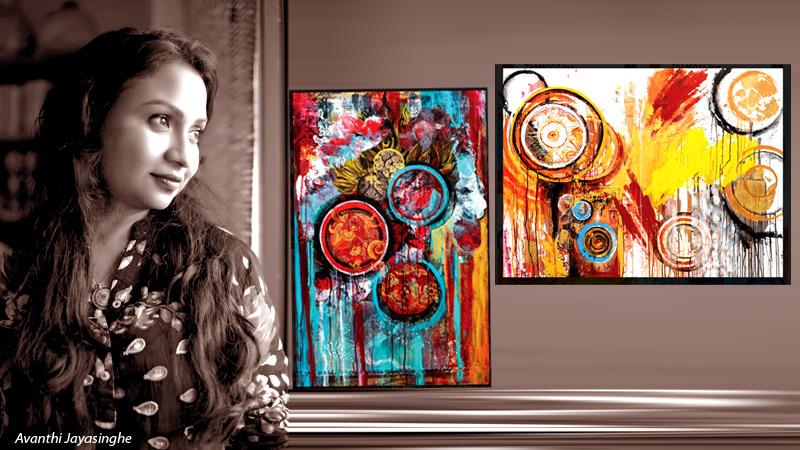
The privilege of a lifetime is to become who you really are - Carl Gustav Jung
Imago Sui underscores the concept that individuals possess a self-image or a sense of identity that shapes their thoughts, behaviour, and interactions. This is a concept that is widely explored in various fields. Philosophically, the idea of Imago Sui is tied to self-awareness and self-consciousness.
As famously stated by Rene Descartes (1596-1650), Cogito, ergo, sum, this notion suggests that self-awareness is an inherent aspect of human existence, emphasising the importance of understanding oneself in relation to the world.
In psychology, Imago Sui coincides with self-concept and self-perception. Carl Rogers (1902- 1987) and Abraham Maslow (1908-1970) emphasised the significance of self-actualisation, wherein individuals strive to reach their fullest potential while aligning their actions with their authentic selves. This process involves recognising and accepting one’s strengths, weaknesses, and values, thus creating a more coherent self-image.
In literature, the Imago Sui theme often appears in characters’ journeys of self-discovery. For example, the Bildungsroman genre explores the protagonist’s growth and development as they grapple with their identities and place in the world. Novels like, ‘To Kill a Mockingbird’ by Harper Lee (1926-2006) and ‘Jane Eyre’ by Charlotte Bronte (1818-1855) depict characters searching for their Imago Sui amid social pressures and personal challenges.
Ultimately, this concept highlights the importance of self-awareness and acceptance.
Acknowledging one’s identity, values and aspirations allows individuals to lead more fulfilling lives, make informed choices and cultivate meaningful connections with others. As humans continue to navigate the complexities of existence, the exploration of Imago Sui remains a timeless pursuit that contributes to personal growth and understanding of human nature.
To Avanthi, the concept of Imago Sui is seen as a representation or reflection of human growth and identity. Artistic expression is often used to convey aspects of the self, society, emotions, and culture and serve as a medium to capture and communicate the complexity of life and the world.
Her interpretation also suggests that art takes on a life of its own outside the artist, as people experience and interpret them differently, often away from the artist’s intended meaning. It also highlights the importance of art in the modern world and its ability to transcend physical and cultural boundaries.
The paintings in this exhibition have been greatly inspired by the writings of Carl Jung (1875-1961), in particular his ideas about the circle archetype. Jung’s ideas about archetypes have had a profound influence on many fields including psychology, literature, and art. Many artists throughout time have used the circle in their work to represent ideas of wholeness and the self.
The circle has been used as a symbol in many different cultures since antiquity. For example, the Native American medicine wheel represents the interconnectedness of all entities in the universe. Similarly, the mandala of Hindu tradition represents the spiritual journey towards enlightenment and, the halo used in many Christian art forms represents holiness and purity.
For this series, Avanthi has focused on circular forms that emerge from seemingly incoherent and chaotic backgrounds, symbolising the wholeness that can be achieved through painful and even turbulent life experiences. She is drawn to the circle as it is also a symbol of hope and continuity.
These paintings are done in layers that help create interesting textures thus giving the surface an extra dimension. She has used different mediums such as textiles, paper, ceramics, and gold leaves for these works. Bright and bold colours symbolise the powerful nature of self and how various themes and temperaments stand out at different periods of life, somehow moving towards a coherent whole.
This multi-layered and mixed-media approach helps to create a sense of movement within the space and engages the viewer in a dialogue with its dynamic nature.
As a psychological counselor, her work mostly revolves around helping people find meaningful solutions and healthy coping strategies for various issues that disrupt their sense of peace and wholeness.
Oftentimes, the answers they seek are buried beneath the debris of accumulated conditioning over the years. Paying attention to Imago Sui and integrating authenticity into their functioning almost always give a sense of control and power over their concerns, which facilitates emotional healing. Her experience working with people and their resilience has also profoundly inspired these paintings.
The exhibition will be held at The Seed Café, Colombo 7, on the 9th and 10th of September 2023, from 10 am to 6 pm. Seventy-five percent of the proceeds from the paintings will go to the children’s ward of the Cancer Hospital, Maharagama.
